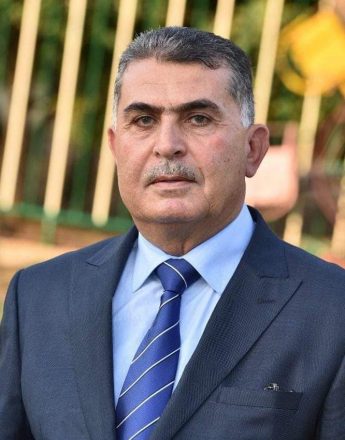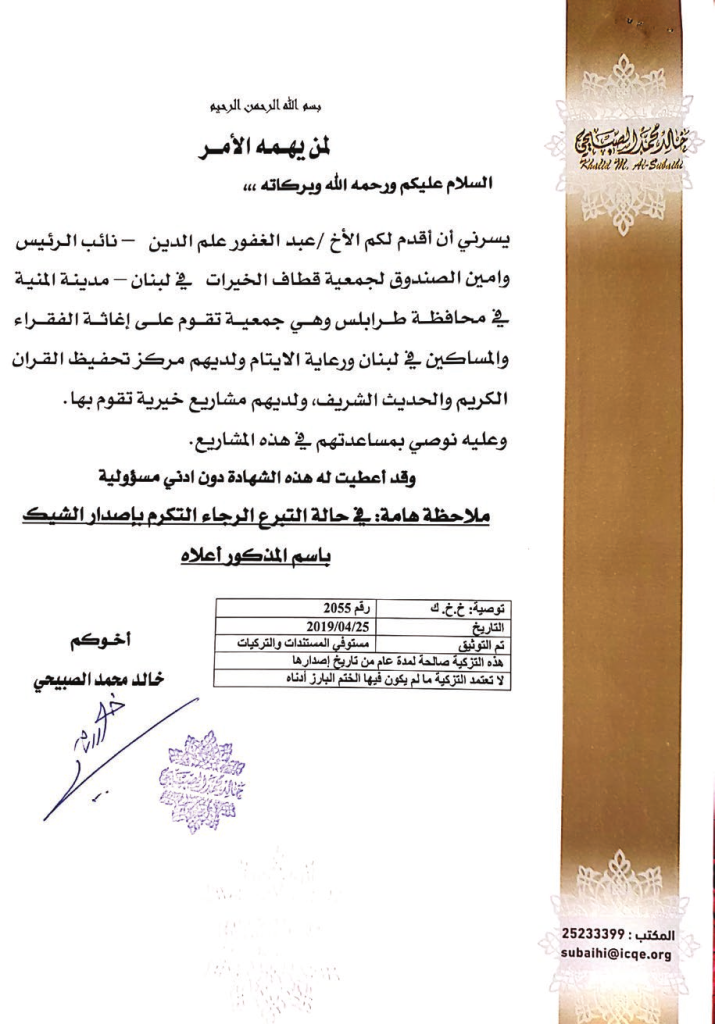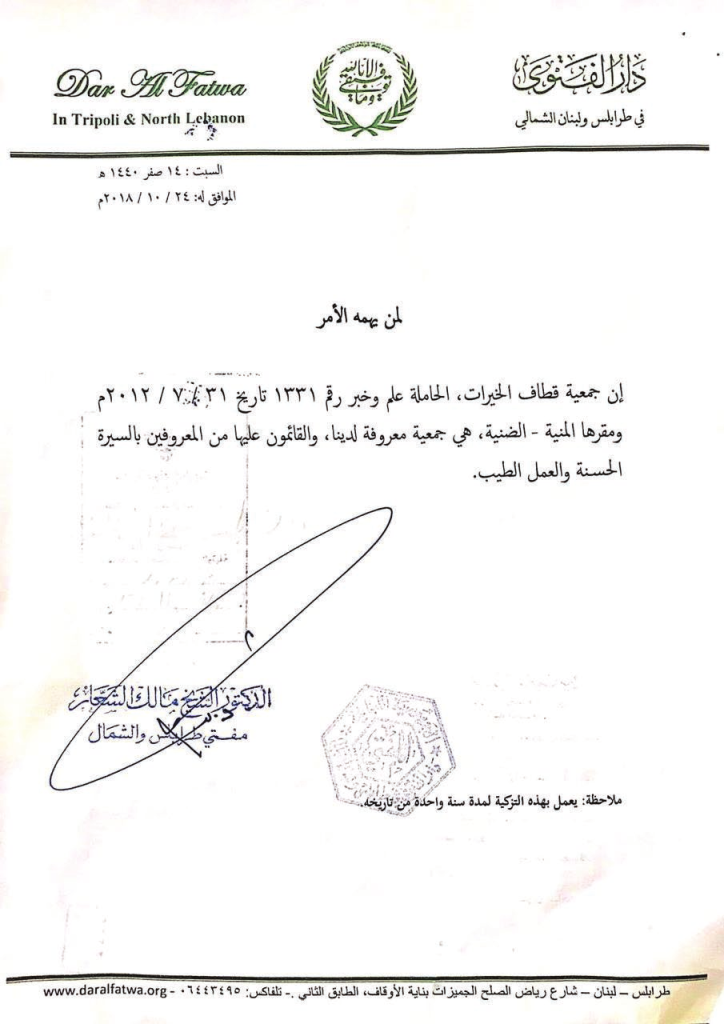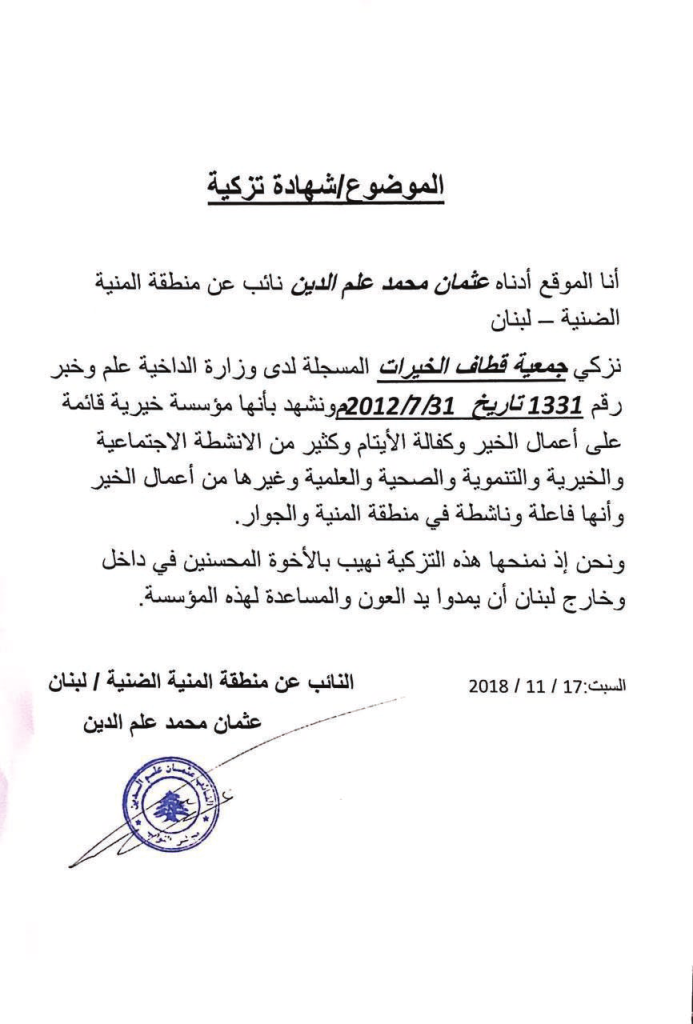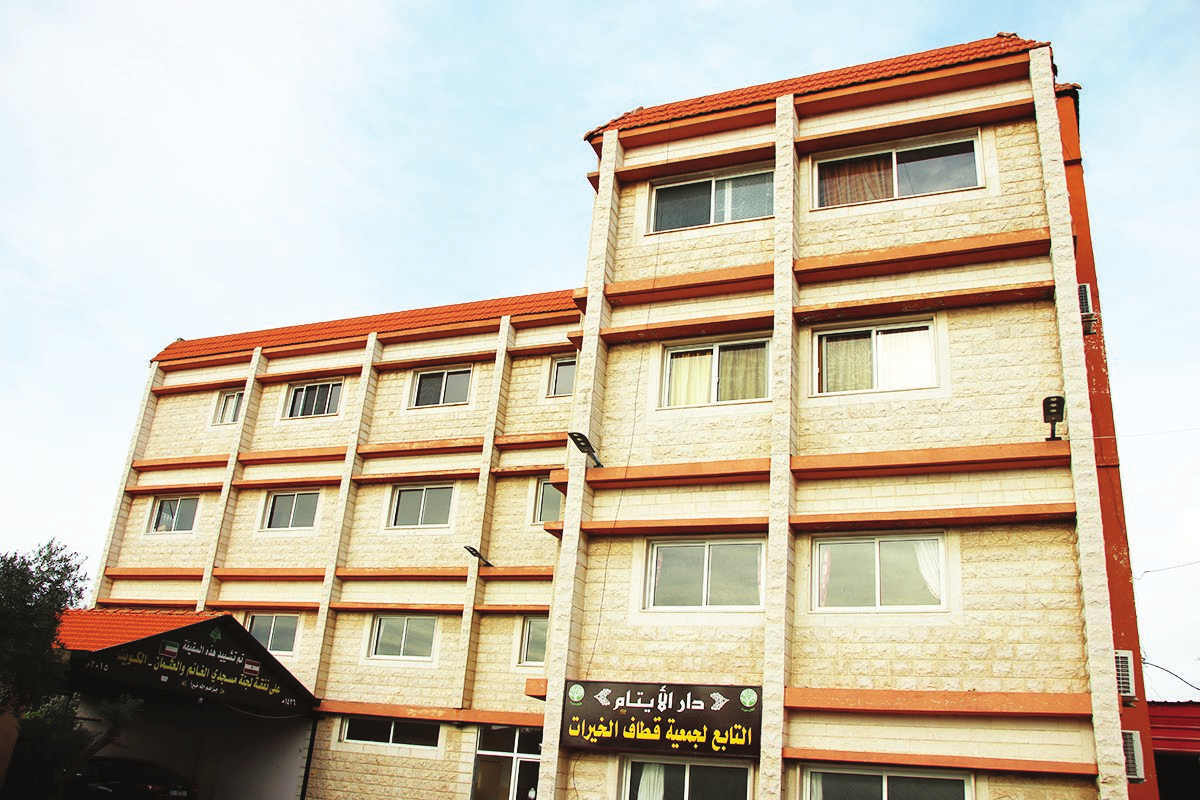

About KItaf Al Khayrat
The Kitaf Al-Khayrat Association was established on July 31, 2012 under the flag and news number 1331, and its headquarters is located in the Minieh area in northern Lebanon. This region, like many regions in the north, suffers from a large percentage of poverty, illiteracy and unemployment. Also, her community has suffered greatly from the scourge of war in northern Lebanon, such as the Nahr al-Bared battle or the Syrian displacement crisis. In addition to these factors, and as a result of the long experience and effective practice of its founders, the Kuwaiti Mr. Yousef Al-Hajri and the Lebanese Mr. Abdul Ghafour Alam Al-Din in the field of charitable work, the culmination of a long journey of giving. The association was established to be a charitable, social, religious, educational, and health institution. Its president, Mr. Yousef Al-Hajri, was credited with purchasing lands and buildings and harnessing his relationships and expertise for the success of the association's projects.
The History
The Kitaf Al-Khayrat Association was established on July 31, under the flag and news number 1331, and its headquarters is located in the Minieh region in the north of Lebanon. Since its inception, the association has been concerned with various fields of goodness and seeks sustainability in all that it offers.
The Vision
Our vision is leadership and excellence in providing humanitarian works and development services to the target groups in an efficient and effective manner and in a manner that guarantees quality to achieve sustainable development.
The Message
We seek to provide humanitarian and relief projects and orphan sponsorship programs by adopting modern systems in dealing with beneficiaries in order to reach all segments of society.
The Targets
1. Spreading the call and adhering to the legal regulations and the hard-earned Islamic education curricula, and preparing programs for memorizing the Holy Quran
2. Providing education and care for orphans and the poor, and establish for them nursing homes and schools
3. Establishing technical institutes to give orphans and the poor the skills that qualify them to build a new life
4. Organizing sports and educational courses and camps, and preparing scientific and religious seminars and lectures
5. Strengthening relations and ties with various Islamic and humanitarian organizations and institutions inside and outside.
Administrators and Founders




الشيخ اسامة الزعبي
امين سر الجمعية ومشرف على مركز تحفيظ القرآن والأيتام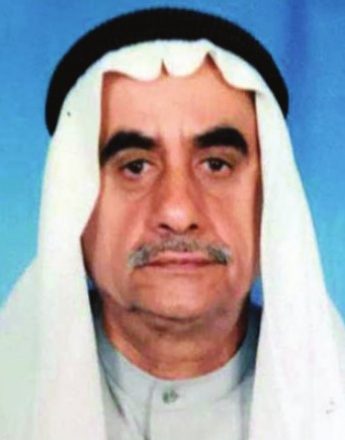

رجل الاعمال يوسف الهاجري
رئيس الجمعية